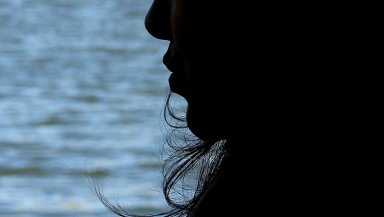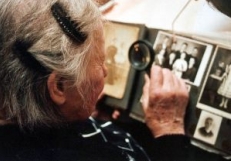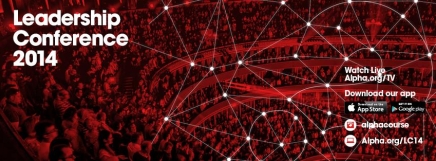
A recent study of more than 5,000 people lifted the lid on the state of the UK's relationships and found that one in ten people have no close friends and one in five rarely or never felt loved in the two weeks before they were surveyed. The Way We Are Now report published by Relate is one of the largest studies of its kind.
We don't have to settle for a life of loneliness, and we don't have to let those in our lives settle for one either. That is because God designed us for connection with Him and with each other. In John 13:34 Jesus said, "A new command I give you: Love one another. As I have loved you, so you must love one another."
We can choose to build our bridge towards people and we can notice when they build theirs towards us. That will mean relinquishing any desire to be totally independent.
That can be a challenge for many of us who are used to being self-sufficient. In our Western society independence is something that is prized and encouraged and it is what many of us seek to achieve. We get a job to pay our way, we live on our own, we do our own cleaning, accounts, washing, shopping, DIY and cooking (even if that is only warming something in the microwave). We take that same independent behaviour into our relationships and we're keen not to be a burden to anyone. In the survey I did for my book Inside Out, 43 per cent of people said they would rather sort out their problems on their own than ask for help.
But I am not sure that is how God made us to function. Of course, there will be people who prefer their own company (23 per cent from the survey) but even the introverts among us could do with others in our lives whom we can care for and know and who can know and care for us. There are proven psychological benefits from having at least one or two close relationships in our lives.
Instead of independence it is much healthier to live interdependently. When we are interdependent we are prepared to ask people for help and to help people when they need us. We open ourselves up to others and allow others to open themselves up to us. We walk through life together rather than on our own. We build bridges to each other's islands. We learn from each other, we encourage each other, we support each other, we care for each other, we have fun together, we build memories together and we help each other to grow. We realise we are stronger and better as two or more than we are on our own.
I love how in the book of Romans in the New Testament Paul reminds us to love, honour, be devoted to, accept, greet and live in harmony with one another. We are met to interact with each other and be interdependent.
Interdependence isn't the same as dependence. Dependence is when we have to have someone in our lives whatever the cost. It is when we need other people to function and to feel ourselves. Just like independence, it isn't a healthy way of living. Other people will never be able to meet all our needs or desires and expecting them to do so will only leave us disappointed. The more we cling to others and demand that they love us the more likely we are to lose their respect and our connection with them.
Connection is an amazing and precious thing. It is given freely and taken freely. It cannot be forced, demanded or manufactured. And we cannot expect our connections to just happen and to endure. We have to be prepared to make deposits in our relationships. That means giving of our time, putting in the effort, giving of ourselves and also being generous with our money and possessions. It means sharing our most precious commodities with others.
We can use our time, effort and money to build bridges or we can use them to build a bigger and stronger fortress on our island. Which will it be?
Sarah Abell is the author of Inside Out – How to have authentic relationships with everyone in your life (Hodder and Stoughton). You can follow Sarah on Twitter and find out more at Nakedhedgehogs.com



















